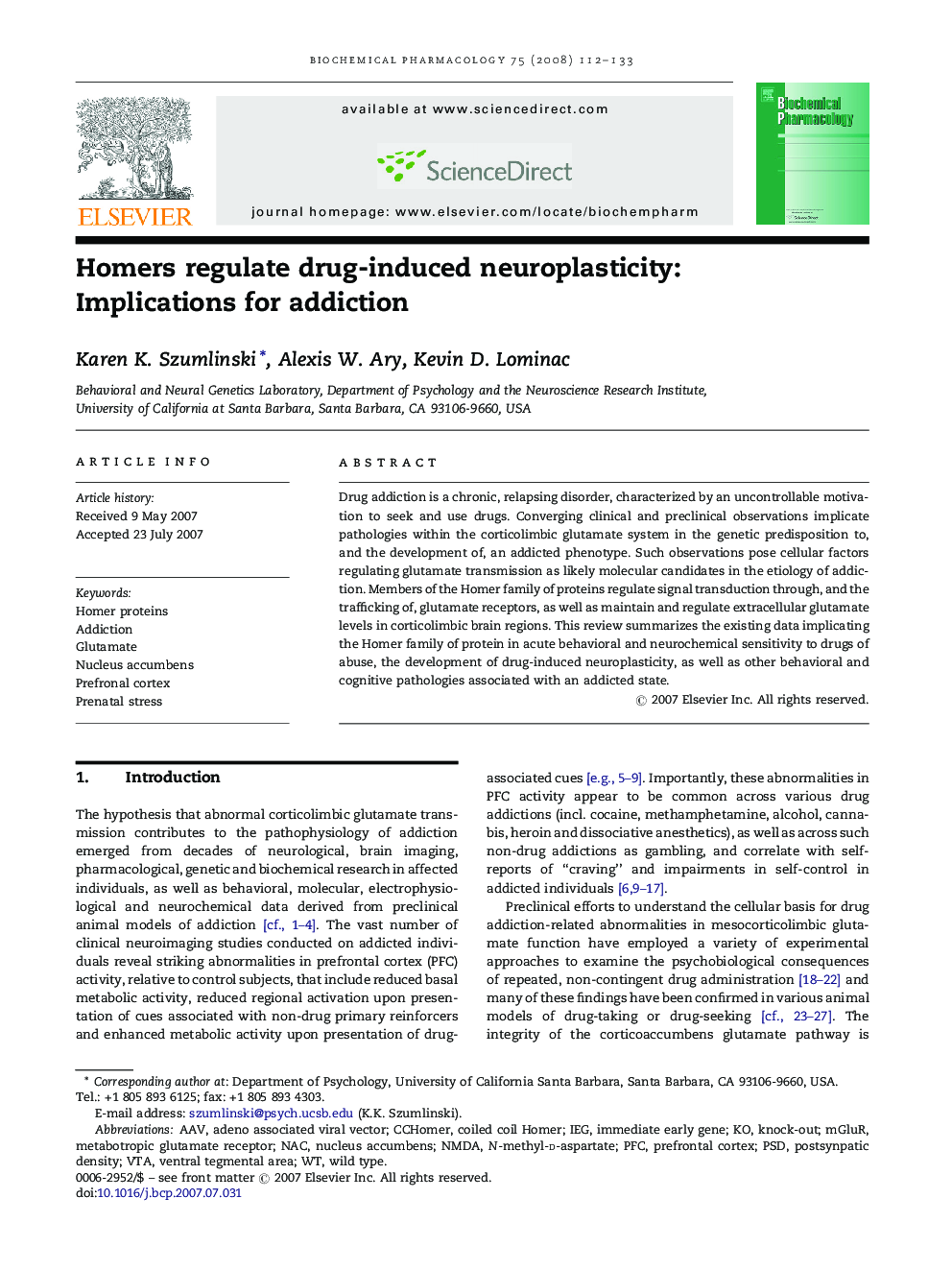| Article ID | Journal | Published Year | Pages | File Type |
|---|---|---|---|---|
| 2514739 | Biochemical Pharmacology | 2008 | 22 Pages |
Drug addiction is a chronic, relapsing disorder, characterized by an uncontrollable motivation to seek and use drugs. Converging clinical and preclinical observations implicate pathologies within the corticolimbic glutamate system in the genetic predisposition to, and the development of, an addicted phenotype. Such observations pose cellular factors regulating glutamate transmission as likely molecular candidates in the etiology of addiction. Members of the Homer family of proteins regulate signal transduction through, and the trafficking of, glutamate receptors, as well as maintain and regulate extracellular glutamate levels in corticolimbic brain regions. This review summarizes the existing data implicating the Homer family of protein in acute behavioral and neurochemical sensitivity to drugs of abuse, the development of drug-induced neuroplasticity, as well as other behavioral and cognitive pathologies associated with an addicted state.
